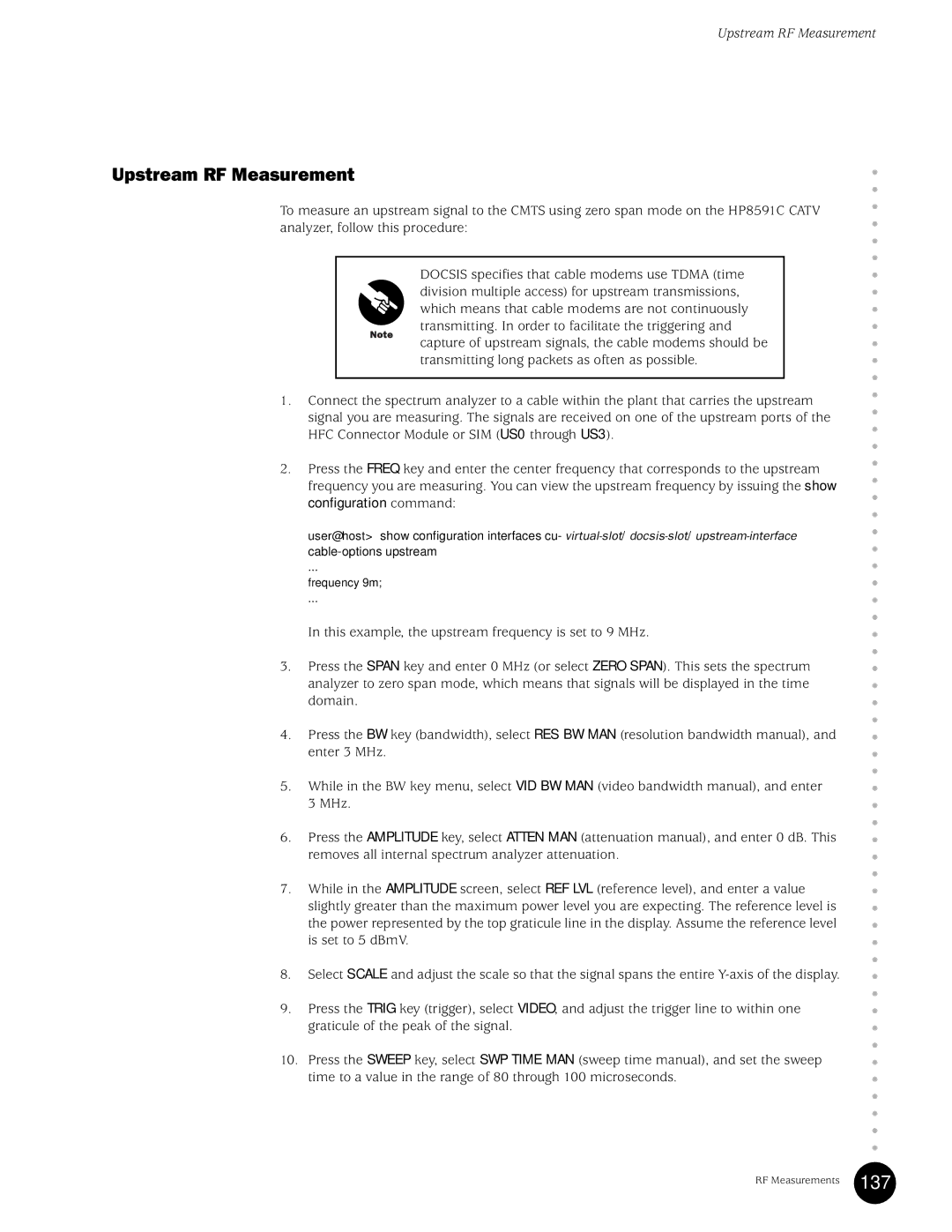
Upstream RF Measurement
Upstream RF Measurement
To measure an upstream signal to the CMTS using zero span mode on the HP8591C CATV analyzer, follow this procedure:
DOCSIS specifies that cable modems use TDMA (time division multiple access) for upstream transmissions, which means that cable modems are not continuously transmitting. In order to facilitate the triggering and capture of upstream signals, the cable modems should be transmitting long packets as often as possible.
1.Connect the spectrum analyzer to a cable within the plant that carries the upstream signal you are measuring. The signals are received on one of the upstream ports of the HFC Connector Module or SIM (US0 through US3).
2.Press the FREQ key and enter the center frequency that corresponds to the upstream frequency you are measuring. You can view the upstream frequency by issuing the show configuration command:
user@host> show configuration interfaces
cable-options upstream
...
frequency 9m;
...
In this example, the upstream frequency is set to 9 MHz.
3.Press the SPAN key and enter 0 MHz (or select ZERO SPAN). This sets the spectrum analyzer to zero span mode, which means that signals will be displayed in the time domain.
4.Press the BW key (bandwidth), select RES BW MAN (resolution bandwidth manual), and enter 3 MHz.
5.While in the BW key menu, select VID BW MAN (video bandwidth manual), and enter 3 MHz.
6.Press the AMPLITUDE key, select ATTEN MAN (attenuation manual), and enter 0 dB. This removes all internal spectrum analyzer attenuation.
7.While in the AMPLITUDE screen, select REF LVL (reference level), and enter a value slightly greater than the maximum power level you are expecting. The reference level is the power represented by the top graticule line in the display. Assume the reference level is set to 5 dBmV.
8.Select SCALE and adjust the scale so that the signal spans the entire
9.Press the TRIG key (trigger), select VIDEO, and adjust the trigger line to within one graticule of the peak of the signal.
10.Press the SWEEP key, select SWP TIME MAN (sweep time manual), and set the sweep time to a value in the range of 80 through 100 microseconds.
•
•
•
•
•
•
•
•
•
•
•
•
•
•
•
•
•
•
•
•
•
•
•
•
•
•
•
•
•
•
•
•
•
•
•
•
•
•
•
•
•
•
•
•
•
•
•
•
•
•
•
•
•
•
•
•
•
•
RF Measurements 137
